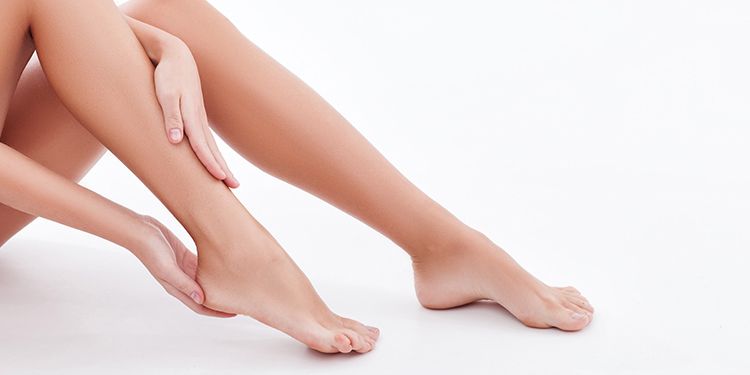Recognizing the Source of Excessive Sweating and Its Impact on Life
While it is commonly recognized as a physiological response to regulate body temperature level, the triggers for extreme sweating can vary widely amongst individuals, including not only physical variables however also psychological and mental aspects. By diving right into the root creates of hyperhidrosis and discovering its multifaceted results, a deeper understanding of this prevalent problem can be gotten, losing light on the complexities that individuals grappling with too much sweating navigate on an everyday basis.
Physiology of Sweat Glands
The law of sweat manufacturing, an essential physical process, is primarily controlled by the task of gland distributed throughout the body. Sweat glands are categorized into two main kinds: eccrine and apocrine glands. Eccrine glands are the most many and are discovered in practically all locations of the body. They play an essential role in thermoregulation by producing a watery fluid onto the skin's surface, which aids and evaporates cool the body down. In comparison, apocrine glands are focused in locations rich in hair follicles, such as the armpits and groin, and their secretions are thicker and milklike in appearance.
When the body temperature level increases, either because of physical activity, high temperature levels, or emotional stress and anxiety, the nerves causes the gland to create sweat. This sweat is made up primarily of water and electrolytes like salt and chloride. The procedure of sweat manufacturing is important for keeping the body's interior temperature level within a narrow, optimum range, highlighting the crucial function sweat glands play in human physiology.
Triggers for Excessive Sweating
In recognizing the origin of extreme sweating, it is vital to determine the triggers that can cause this physical action. Excessive sweating, also referred to as hyperhidrosis, can be prompted by different variables, both physiological and ecological. One typical trigger is psychological tension or stress and anxiety, which can stimulate the body's gland to produce more sweat than is required for cooling down. Physical exertion, heats, and spicy foods are also known to cause excessive sweating in people vulnerable to this condition. Additionally, certain medical problems like hyperthyroidism, diabetic issues, or menopause can add to extreme sweating too.
Additionally, medications such as some antidepressants, opioids, and certain supplements can additionally function as triggers for hyperhidrosis. Recognizing these triggers is vital in taking care of extreme sweating effectively - How to stop sweaty hands. By recognizing and attending to the specific triggers that prompt excessive sweating in a private, healthcare suppliers can establish customized therapy strategies to relieve this condition and improve the individual's lifestyle
Medical Conditions Associated
Related to extreme sweating are various medical conditions that can exacerbate this physical reaction. One usual condition is hyperhidrosis, a problem defined by unusually increased sweating that surpasses the body's thermoregulatory requirements. This can manifest in focal locations like the palms, soles, underarms, or face, affecting a person's lifestyle due to social humiliation and pain.
Moreover, endocrine disorders such as hyperthyroidism, diabetes mellitus, and menopausal warm flashes can additionally lead to too much sweating. Hyperthyroidism causes an overflow of thyroid hormonal agents, speeding up metabolic rate and causing sweating.
In addition, infections like consumption, endocarditis, and hiv have actually been connected with evening sweats, a typical sign understood to disrupt rest and impact general well-being. These medical conditions highlight the varied variety of underlying factors that can add to too much sweating, necessitating extensive examination and management by healthcare specialists.
Emotional and emotional Aspects

Effect On Social Communications
Excessive sweating can have profound impacts on a person's ability to involve pleasantly in social communications. The noticeable indications of sweat discolorations or damp spots on apparel can lead to embarrassment and self-consciousness, triggering individuals to take out from social scenarios. This withdrawal can affect relationships, limit social activities, and impede personal and professional development.

In addition, the anxiety and self-esteem issues originating from too much sweating can affect communication and interpersonal skills. Individuals may have a hard time to focus on conversations, take part in team tasks, or share themselves with confidence. This can bring about sensations of my blog seclusion and isolation, as social links end up being testing to keep.
Verdict

While it is commonly comprehended as a physiological reaction to control body temperature, the triggers for too much sweating can vary commonly among people, incorporating not just physical variables yet likewise emotional and emotional aspects. By delving right into the origin creates of hyperhidrosis and discovering its diverse effects, a deeper understanding of this pervasive concern can be gained, losing light on the intricacies that people grappling with too much sweating navigate on a day-to-day basis.
Physical exertion, high temperature levels, and spicy foods are additionally recognized to trigger excessive sweating in people susceptible to this problem. By identifying and attending to the particular triggers that motivate too much sweating in a specific, healthcare companies can develop personalized therapy plans to reduce this problem and enhance the person's top quality of life.
Too much sweating can have extensive results on a person's capacity to engage easily in social communications.